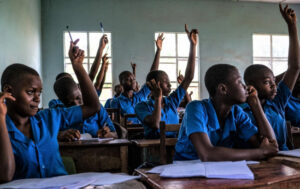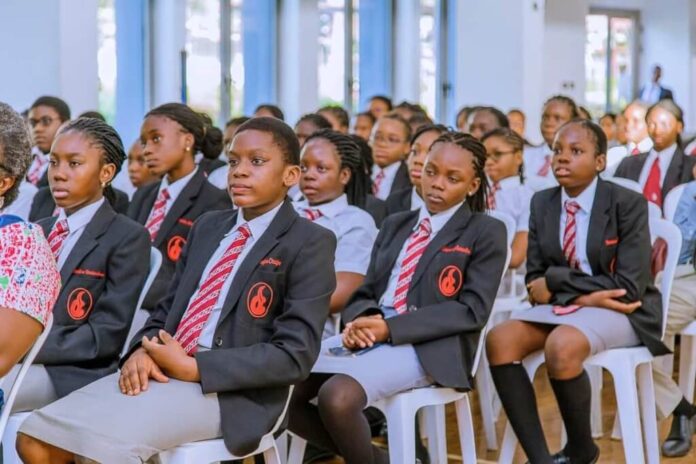In today’s world, cross-border collaborations hold immense potential for driving educational and economic growth. The Deputy Speaker of the Nigerian House of Representatives, Rt. Hon. Benjamin Okezie Kalu, has taken a bold step by championing a student exchange program between Nigeria and the United Kingdom (UK). This ambitious initiative aims to boost education, enhance skills, and foster collaboration between Nigerian and British universities.
During a recent courtesy visit, Mr. Simon Parkes, Senior Deputy Vice-Chancellor of the University of Lincoln (UK), engaged in fruitful discussions with Deputy Speaker Kalu. Dr. Wisdom John Okoye, representing Eminent Transglobal Services Ltd, accompanied the delegation. The primary goal of their meeting was to explore ways of improving agriculture and security in Nigeria through strategic partnerships with academic institutions.
Deputy Speaker Kalu emphasized that the objectives of the student exchange program align closely with both the Renewed Agenda of President Bola Ahmed Tinubu and the Legislative Agenda of the Nigerian House of Representatives. These agendas address critical challenges faced by Nigerians, particularly in the areas of agriculture and security. By working together, stakeholders can drive positive change and create a better future for all citizens.

Kalu highlighted the unity of purpose across Nigeria’s three arms of government—the executive, legislature, and judiciary. While each arm has distinct roles, their collective objective remains the same: to drive social and economic impact for citizens. By upholding principles such as checks and balances and the separation of powers, Nigeria can work towards a common goal of national development and progress.
The prospect of a student exchange program between Nigerian and UK universities presents a valuable opportunity for knowledge sharing. By leveraging the expertise and resources available in the UK, Nigeria can enhance its educational infrastructure and address existing gaps. This collaboration holds the potential to significantly impact the quality of education and skills development in both countries.
Deputy Speaker Kalu emphasized the importance of focusing on key areas for enhancing Nigeria’s education system, including:
Infrastructure development to improve learning environments
Investment in teacher training and professional development
Emphasis on technical and vocational education alongside traditional academic pathways
The Digital Learning Imperative: Empowering Students for Economic Contribution
While traditional certificates hold value, Kalu stressed the need for a stronger emphasis on technical education and digital learning. By equipping Nigerian students with practical skills and technical training, the country can produce a workforce capable of driving economic growth and innovation. This shift towards a more skills-focused education system is essential for bridging the gap between classroom learning and real-world application.
Kalu underscored the importance of good governance and adherence to the rule of law in attracting foreign investments. By maintaining transparency, accountability, and a conducive business environment, Nigeria can attract valuable investments that spur economic growth and development. This, in turn, creates opportunities for job creation and overall prosperity.
The proposed Nigerian-UK student exchange program represents a bridge across borders, connecting educational institutions, fostering knowledge exchange, and ultimately enhancing education and skills for the benefit of both nations. By working together, Nigeria and the UK can pave the way for a brighter future filled with educational opportunities and economic prosperity.




